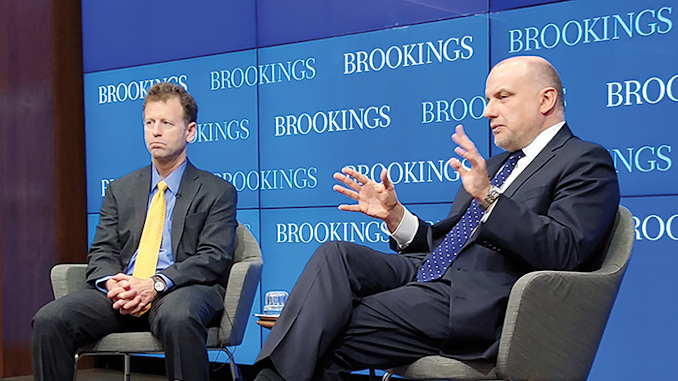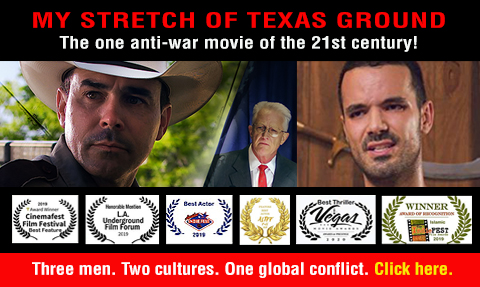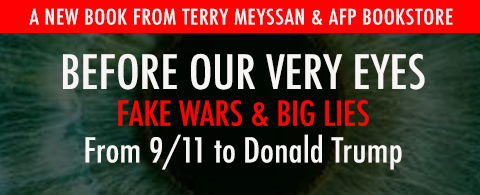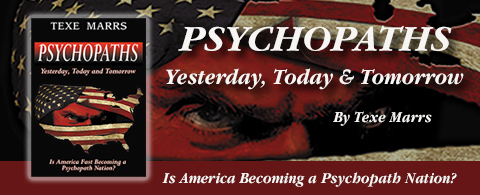
By Mark Anderson
WASHINGTON, D.C.—Estonia is playing a surprisingly large role in sponsoring NATO exercises, involving an estimated 24,000 U.S. troops this spring near Russia’s border. At the same time, the small Baltic nation’s top officials are visiting Washington to advance the longstanding but highly questionable narrative that Russia has a total monopoly on geo-political wrongdoing in the region.
On March 2, in the company of globalist veteran Strobe Talbott, who was in the audience, Estonian Defense Minister Juri Luik addressed Brookings at its 1775 Massachusetts Avenue headquarters and cast Russia as the West’s unyielding, unrepentant arch-foe.
During the question and answer period following his formal remarks, Luik bristled when pressed by AFP why Russian leader Vladimir Putin would recklessly attack the Baltic States of Lithuania, Lativa, and Estonia, when Russia knows the West’s retaliation would be devastating.
This writer also pressed Luik on why he suggested that Russia should simply forgo its policy of maintaining military “buffer zones” along its border with NATO-member states, even though common sense dictates that every nation, friend or foe, would naturally exercise its right to create such zones, especially considering that Russia has seen NATO constantly add more nations to its roster and apply further pressure to “threaten” Russia from the vantage point of the Russian people and their government.
“Russia’s going to perceive NATO as the expansionist power bloc,” this writer pointed out. “It depends on which end of the ‘telescope’ you’re looking down [as to who the “aggressor” is]. An in addition, Putin is a lot of things . . . but he’s not stupid. What benefit would he get out of attacking the Baltics?”
Luik replied: “Wars have been started by very smart men.” He added that, when he served in a European think tank, had he predicted back then that Russia would attack Ukraine, “I would have been kicked out of the think tank community. Russia and Ukraine . . . two brotherly nations . . . one borne of the other nation with a common heritage—and still we have a war between them.”
Luik avoided the counternarrative that Russia did not actually “annex” Ukraine’s Crimean Peninsula. Rather, Russia moved into Crimea and conducted an election to re-enfranchise and protect the Russian-leaning majority there in 2014 only after the West, via former Assistant Secretary of State for European and Eurasian Affairs Victoria Nuland, overthrew Ukraine’s Russian-leaning government in February of that year in a coup that’s soothingly called “the Maidan Revolution” by the scholars inhabiting the D.C. Beltway’s think tanks.
Luik claimed that NATO’s battalions in Estonia do not compare in size or strength to Russia’s massive tank forces and other military assets near the border, but that is hardly a surprise, since Russia is defending its homeland from multi-national assets deployed in the Baltics.
“I’m always very careful when people say to me, ‘Putin will never attack you,’” Luik told this writer. “Because people who say that don’t have the means to guarantee what they say. They might be right, but they might be wrong. And if they’re wrong, they cannot help me. So that’s why I prefer . . . [military] preparedness.”
Brookings’ foreign policy director Michael E. O’Hanlon served as moderator. He said thta Estonia has been a NATO member since 2004 and an “independent state for three decades.”
“NATO has its cyber command and does a great deal of cyber [exercises] in Estonia,” O’Hanlon remarked. He noted that Estonia meets or exceeds the requirement that it put up at least 2% of its GDP to support NATO. “So, its military budget in percentage terms is among NATO’s highest.”
“We have a worthy alliance, but we need to strengthen it further,” Luiks said of NATO during his brief formal remarks. “We all need to spend more on defense and do it wisely. . . . We are now even exceeding the 2%. The growing number of allies have done this as well.”




Nikita Cruschev gave away the Crimea in the 1950s. N. Cruschev could not have known the not so distant future..USSR is gone. Now is the day of Mr. And Mrs Olygarch..Peace on earth. Jesus Christ loves us All.